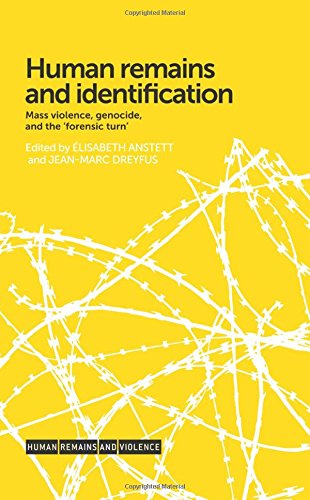(Ebook) Human remains and identification: Mass violence, genocide and the 'forensic turn' by Élisabeth Anstett, Jean-Marc Dreyfus ISBN 9780719097560, 0719097568
Human remains and identification presents a pioneering investigation into the practices and methodologies used in the search for and exhumation of dead bodies resulting from mass violence. Previously absent from forensic debate, social scientists and historians here confront historical and contemporary exhumations with the application of social context to create an innovative and interdisciplinary dialogue. Never before has a single volume examined the context of motivations and interests behind these pursuits, each chapter enlightening the political, social and legal aspects of mass crime and its aftermaths.
The book argues that the emergence of new technologies to facilitate the identification of dead bodies has led to a 'forensic turn', normalising exhumations as a method of dealing with human remains en masse. However, are these exhumations always made for legitimate reasons? And what can we learn about societies from the way in which they deal with this consequence of mass violence?
Multidisciplinary in scope, this book presents a ground-breaking selection of international case studies, including the identification of corpses by the International Criminal Tribunal for the Former Yugoslavia, the resurfacing of human remains from the Gulag and the sites of Jewish massacres from the Holocaust. Human remains and identification will appeal to readers interested in understanding this crucial phase of mass violence's aftermath, such as researchers in history, anthropology, sociology, forensic science, law, politics and modern warfare.
*Free conversion of into popular formats such as PDF, DOCX, DOC, AZW, EPUB, and MOBI after payment.


